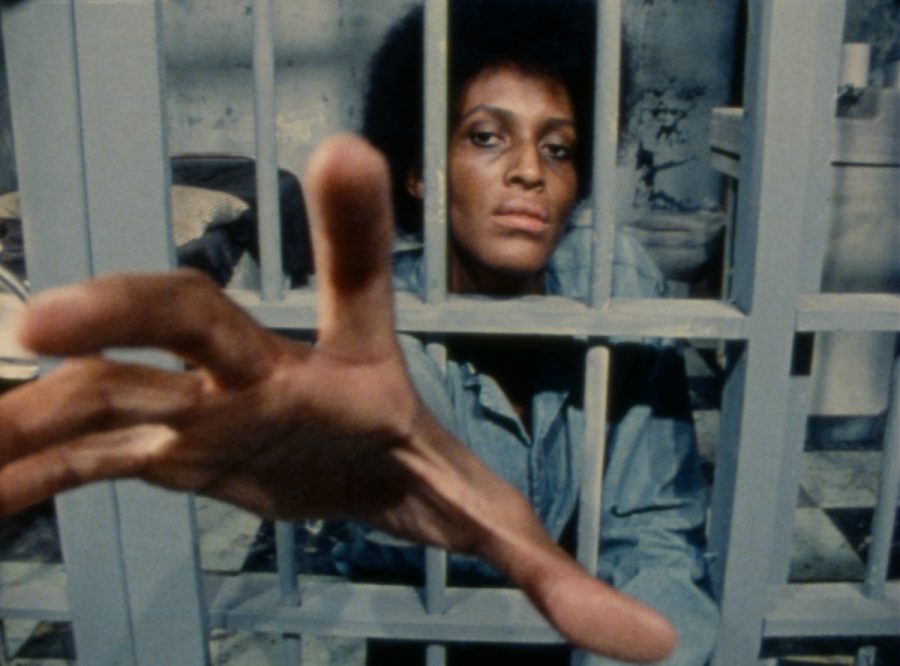Goodbye Blaxploitation, Hello LA Rebellion
April 5, 2018
In 2007, University of California, Los Angeles Film and Television Archive Director Jan-Christopher Horak received a grant from the Getty Foundation to restore and preserve the films made by a group of black UCLA film students between the 1960s and 1980s. Horak recounts the difficulty of even identifying many of the filmmakers, for many films were severely damaged, like thesis works stored under beds or thrown out on the streets. The black filmmakers and their radical work at the time were largely forgotten by UCLA professorship until today. They are now known as the LA Rebellion.
Horak and the LA Rebellion initiative started the project believing the California film movement involved around eight or 10 filmmakers. After years of restoration work, the team realized they were looking at a movement of over 50 filmmakers, with over 100 film titles.
The LA Rebellion was founded in the midst of heavy racial turmoil. In the wake of the Watts Riots and the 1969 shoot-out on UCLA’s campus, the first group of black filmmakers to graduate from UCLA’s School of Theater, Film and Television created a number of films combating the traditional black narratives seen in media.
Their goal was to tell authentic stories that did not rely on Hollywood stereotypes or on the Blaxploitation genre. Many instead found inspiration in developing world, postwar cinema from Latin America and Africa, like Charles Burnett’s “Killer of Sheep,” Jamaa Fanaka’s “Penitentiary” and Julie Dash’s “Daughters of Dust.”
“There’s this misconception that black cinema did not exist or did not really start until the late ’80s, with Spike Lee, when really there was this whole generation of West Coast filmmakers making films since the ’70s,” Horak said. “Young filmmakers need to see this work and especially filmmakers of color need to see they are not the first generation, that there is a tradition of filmmaking, and it goes back almost 50 years.”
Tisch graduate Jessica-Brittany Smith relates to the sentiments behind the LA Rebellion, and her understanding of the movement affects how she understands acting. According to Smith, acting is an expression of compassion, and the LA Rebellion is black filmmakers acting in compassion toward people with similar experiences.
Common narratives found in black cinema include incarceration, police brutality and slavery. While Smith believes these topics are important because they disproportionately affect black people, in order to move forward, it is necessary to see more from Hollywood. While many movies focusing on the black experience have found great success in mainstream cinema, Smith believes too many black films need to be validated by white audiences to succeed.
“It’s really important that the craft is there and the money is given,” Smith said. “l think it is about where we put our money in an industry. Investing money into black art is about seeing more and seeing more for a very long time.”
Tisch sophomore Jacarrea Garraway applied to film school to prevent this. To Garraway, three-dimensional black characters need to be created in film so minorities can further integrate themselves into an industry that traditionally ignores or even rejects minority narratives.
“I try not to think about the audience when I make film, but it’s hard not to,” Garraway said. “I grew up in a household where it will be a black audience in my mind. I know especially for me there is this pressure to support and uplift the black community in film. It is always about me trying my best to promote not just positive but realistic images — it can’t just be for Hollywood or for dramatic effect.”
Like the film students from the LA Rebellion, Garraway and so many other emerging filmmakers see the future of film – independent and experimental films – as a more effective and accessible way to express authentic stories about the black community. And bearing the critical and commercial success of films like “Moonlight” and “Black Panther” in mind, we cannot blame them.
A version of this article appeared in the Thursday, April 5 print edition. Email Jessica Xing at [email protected].












































































































































